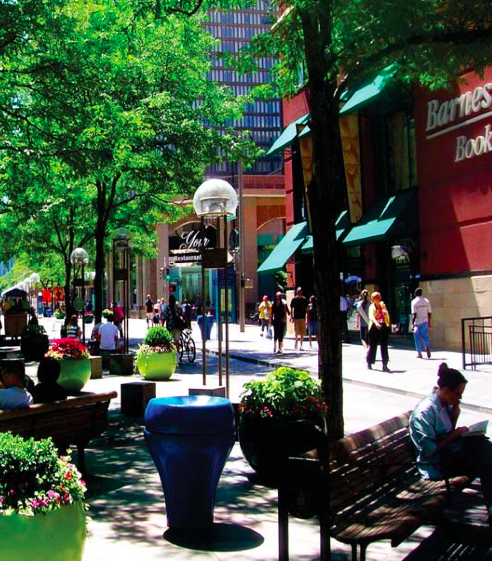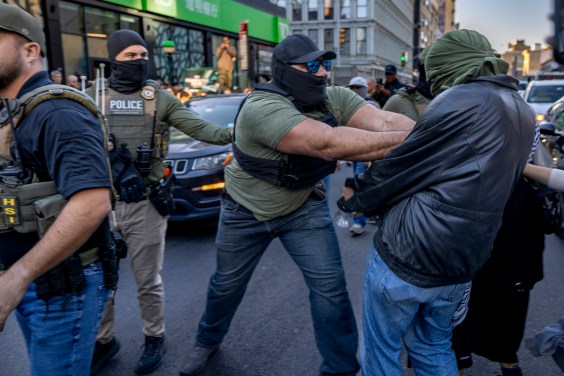With a fast-growing transit network, Denver is grappling with how to build walkable places around its new rail lines, and the Denver Business Journal is running a package of stories about the potential for transit-oriented development. Overall it looks like a solid introduction to the notion that Denver needs to reduce car dependence, but the series did take an unfortunate detour into "war-on-cars" fantasy-land today with a he-said/she-said piece titled "Are transit-oriented developments a campaign against cars?"

Still, it's helpful to get a reminder of what urbanists are up against in cities like Denver. In this case, the "debate" started with a Denver Post column by City Council President Mary Beth Susman published in June. In a fairly moderate plea for better transit options, Susman noted that in addition to providing incentives -- "carrots" -- to entice folks to try walking, biking or transit, the city is planning to use some disincentives -- "sticks" -- to discourage driving. The two "sticks" she mentioned were reducing parking requirements -- we're talking about loosening government regulations that compel -- and refraining from widening roads in some areas of the city.
In response, the conservative Colorado Peak Politics called Susman's editorial an "astonishing" admission that the city's policy was trying to "actually make driving inconvenient." The outraged, anonymous blogger asserted that nobody with kids to drop off, or a "client-facing position," or groceries to pick up will ride a bike in Denver, and that policies that try to make biking safer and more practical are a "dangerous" attack on the middle class.
But the real hidden gem of this whole episode comes from Kathleen Calongne of the sprawl-loving American Dream Coalition. While it's regrettable that Business Journal reporter Caitlin Hendee treated Calongne as a credible source, she's at least good for some laughs.
“Research reveals that traffic calming projects are often motivated by individuals in our federal and local governments willing to sacrifice safety in an effort to discourage travel by car," Calongne claims. Exactly what is motivating national and local government leaders to mislead the public in their quest to make driving worse, she doesn't say. She does, however, go on to argue that traffic calming and transit-oriented development are bad for people with disabilities and the elderly.
Calongne doesn't specify what research backs up her claims, but her credentials appear to consist mainly of this ancient article hosted by the National Motorists Association, purporting to show evidence that traffic calming harms people. Even back in the early aughts, when that article appears to have been published, there was ample evidence that traffic calming saves lives: A 1997 study [PDF] published in the Institute of Transportation Engineers reviewed 85 studies of traffic calming cases in Europe, North America, and Australia and found a decrease in collisions ranging from 8 to 95 percent.





